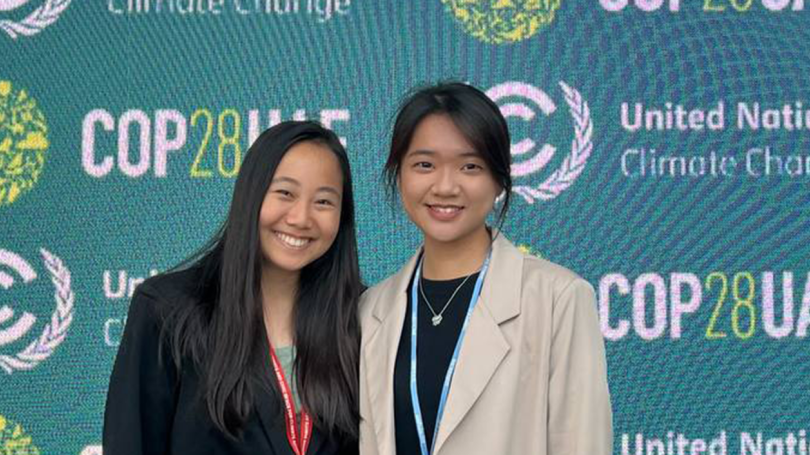
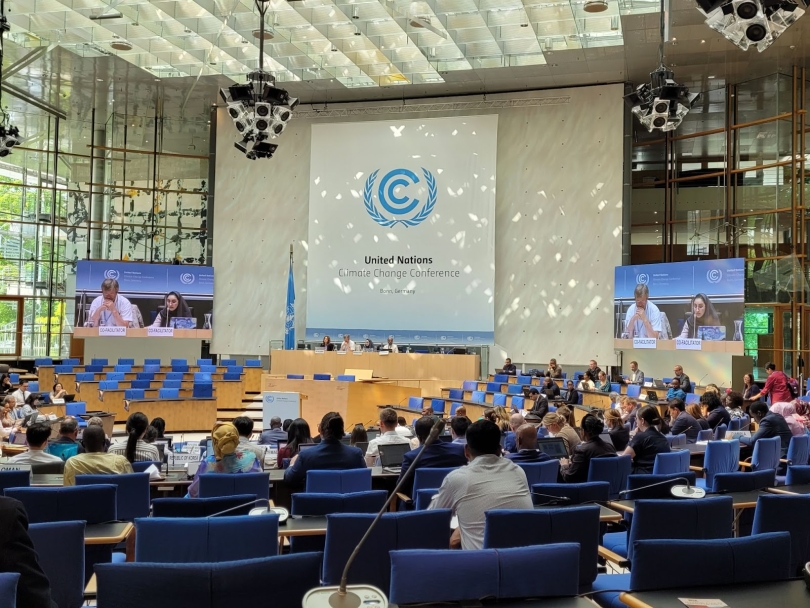
Kathlene Yeo '25, a Dartmouth Environmental Studies major and alum of the Energy Justice Clinic, used Irving Institute Student Grant funding to support her participation in the Bonn Climate Negotiations in Germany in early June 2023. Her reflecton on the experience follows.
Most people might have heard of the annual UN climate summit Conference of the Parties (COP), where politicians, diplomats, academics, and civil society groups gather to adopt important climate decisions. But lesser known is the Bonn Climate Change Conference held in June, also known as the Subsidiary Bodies (SBs). This is where negotiators from around the globe come together to discuss key decisions in the run-up to COP.
This year, I had the incredible opportunity to attend SB 58 with the NGO Climate Action Network Southeast Asia (CANSEA), which I joined as a communications intern last year. On June 3, after a long flight delay, attempting to write a final paper on the plane but giving in to the temptation of The Devil Wears Prada instead, and losing my suitcase during my layover, I finally arrived in Bonn, Germany! Here were some of the key highlights of my trip.

First, the negotiations. With so many concurrent discussions, I chose to focus on these work streams: Carbon markets, mitigation, and loss and damage. Carbon markets refer to systems in which carbon credits—the right to emit one tonne of carbon dioxide into the atmosphere—can be sold and bought. (Professor Maron Greenleaf from the Department of Anthropology has written extensively about this!) While I personally still struggle to agree with the premise of carbon markets, particularly considering the risks of land grabbing, greenwashing, and often ineffective outcomes, they have already been formalized into the Paris Agreement. Countries are now working to create a global carbon market overseen by a United Nations Supervisory Body. However, progress in negotiations has been slow due to the need to build robust rules while respecting national sovereignty, and disagreements over how transparent the system should be.
Discussions on loss and damage (L&D) brought me slightly more hope. L&D refers to the unavoidable impacts of climate change beyond communities' capacity to adapt—such as the catastrophic floods that inundated one-third of Pakistan last year. For decades, developing nations like Pakistan have been calling on richer nations, including the US, to compensate them for climate-related damages. At Bonn, countries held open dialogues on L&D and explored funding options—such as shipping levies—to support developing countries. Unfortunately, climate finance remains a sticking point as developed countries refuse to accept historical responsibility for driving the climate crisis.
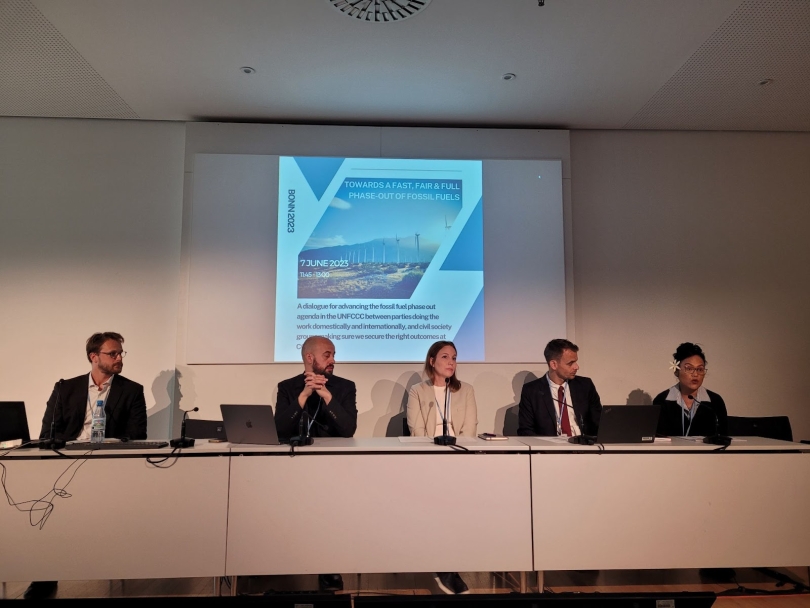
Besides negotiations, SB 58 also featured many side events at the conference venue. These often comprise panel discussions intended to raise awareness about specific issues, but which are not considered formal negotiations. In one particular event on phasing out fossil fuels (pictured), Olivier Bois von Kursk, a policy analyst from the International Institute for Sustainable Development, shared that investments for renewables are still far below what is needed. He said, "There is no lack of energy capital globally. It's just going to the wrong places, to oil and gas development instead of wind and solar." Another panelist spoke about how the fossil fuel industry is recording massive profits at the same time as more and more people are bearing the costs of climate-related disasters.
At the conference, I also attended multiple closed-door bilateral meetings with policymakers from different countries alongside Climate Action Network. We discussed their goals, why they were unwilling to compromise on certain items, and how we as civil society members could help them. These were often the most insightful meetings for me as many policymakers were surprisingly frank in explaining their countries' interests. One negotiator, for instance, shared that their negotiating bloc (comprising a group of countries) would not agree to stronger mitigation targets if developed nations did not promise more climate finance, as a matter of equity.
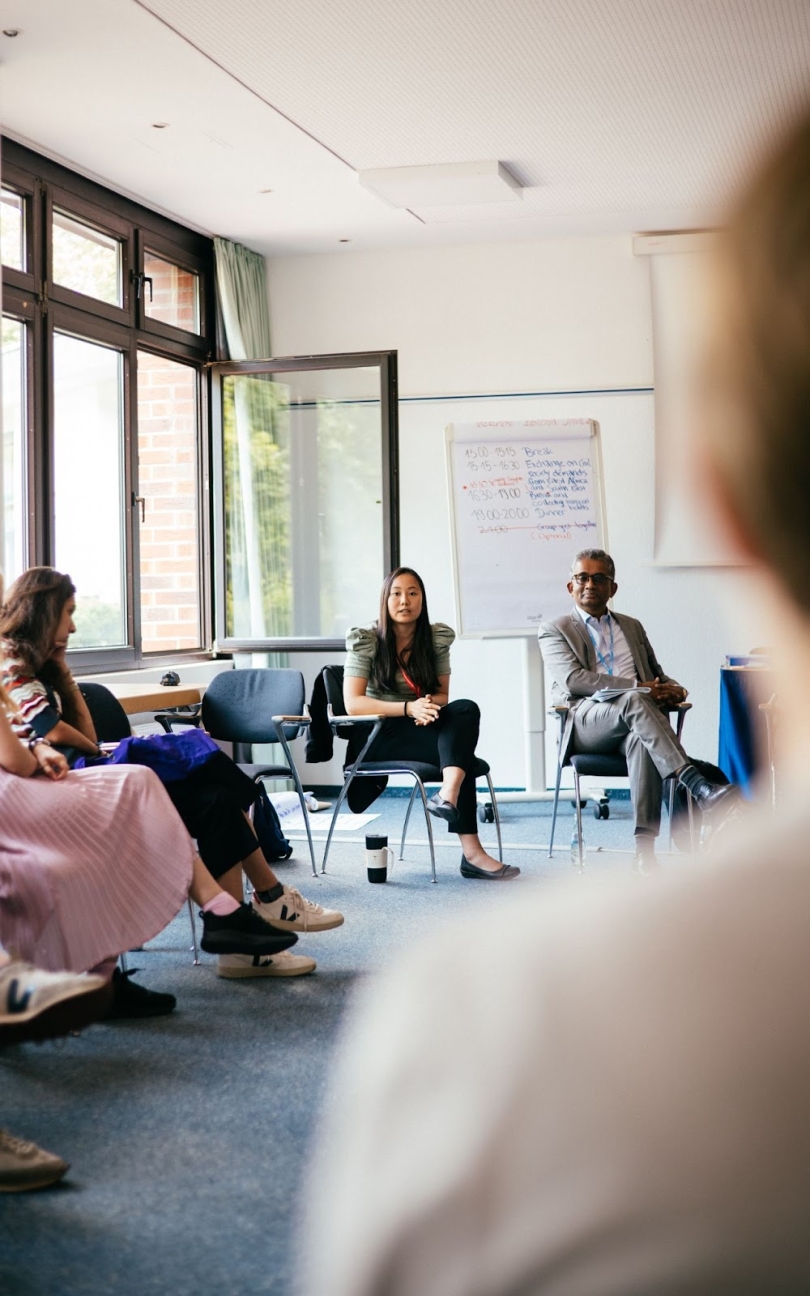
In Bonn, I also had the opportunity to speak on a panel at the Climate Connection Fellowship Programme. I shared honestly about my experience as a youth delegate struggling to keep up in technical, policy- and politics-driven spaces like SB58. I also stressed how climate advocacy looks different for everyone. Some want to pursue consulting or research, others may prefer journalism, video production, or even poetry. Importantly, climate action takes place at all scales and levels: you don't have to attend conferences in order to drive environmental change!
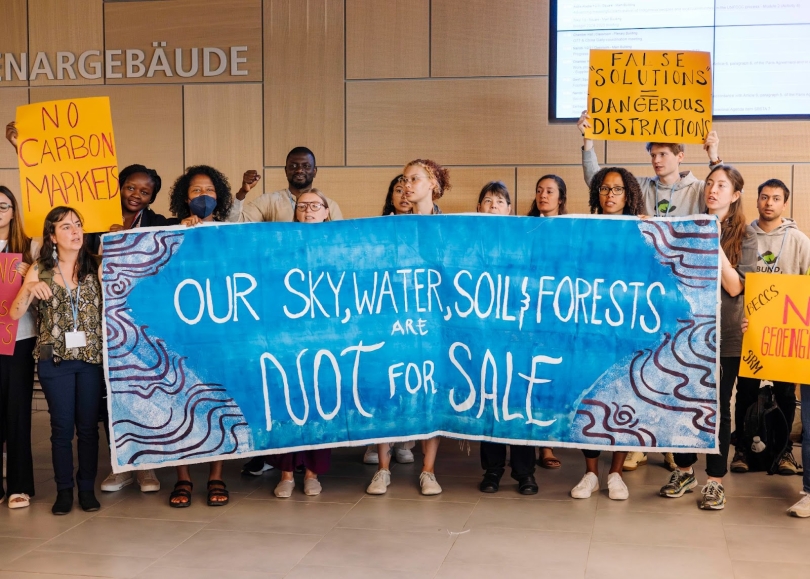
In closing, climate negotiations are not an easy place to be in. I find myself often feeling frustrated and pessimistic at the slow pace of discussions, and from conversations with friends I know I am not alone. But SB 58 also offered me a strong sense of community: from catching up with friends I made at COP27, to being able to work alongside and learn from much more experienced academics and advocates. The conference also saw numerous demonstrations by civil society organizations, including a massive youth-led march, which were important reminders that the climate movement is ultimately a collective one. My experience at SB 58 reminded me that it is important to hold fast to my own values and continue to fight for what I believe is right—and that I don't have to do it alone.
_____________________________
Kate also wrote an article on the conference for Eco-Business.